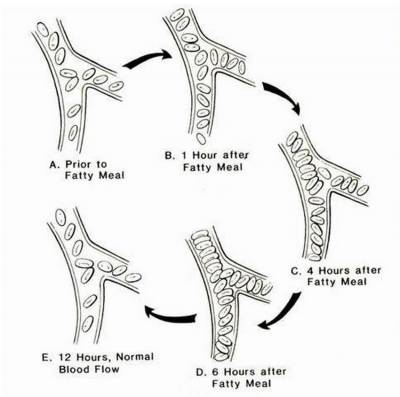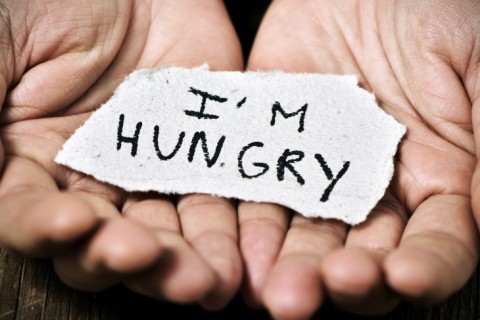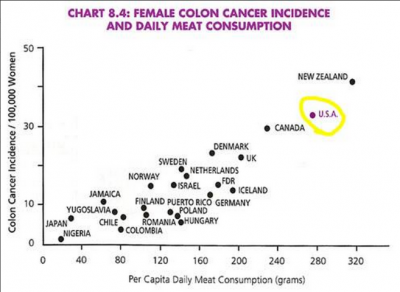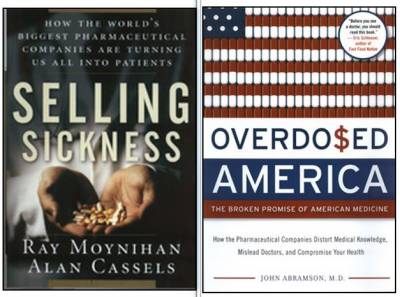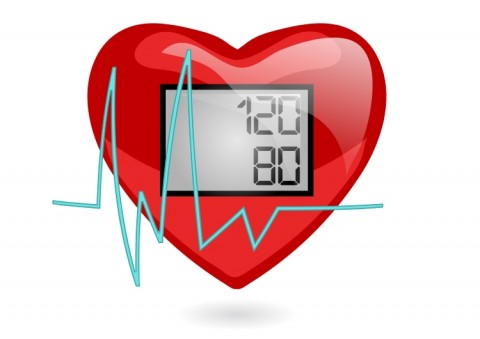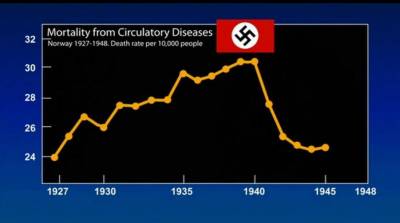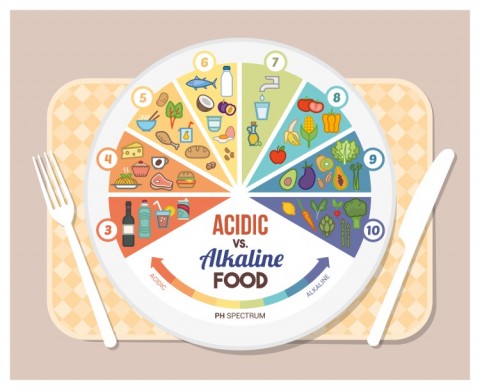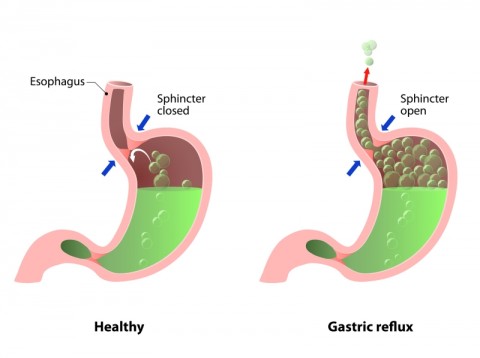Have you ever met your friends at your favorite restaurant and when you returned home, you felt too sluggish or sleepy to be productive, so you crashed on the sofa to watch TV? This phenomenon is not a surprise to Dr. John McDougall, who has been studying the effects of high-fat meals for over 40...
DrCarney.com Blog
Diabetes is a serious disease and is the 7th leading cause of death in the U.S. Having diabetes doubles the risk of having a stroke or heart attack. In fact, stroke and heart attacks "account for 84% of diabetes-related deaths." Many other complications include kidney failure, blindness, nervous system damage, gangrene in the lower limbs (which lead to amputations), increased risk of cancer (especially colorectal cancer), and even premature death.
Although these statistics are troubling, Dustin Rudolph Pharm.D. offers several steps parents can take to help prevent their children from developing type-1 diabetes in his article, "Type 1 Diabetes - Avoiding Dairy Is Key To Prevention."
Doctor John McDougall featured ten patient success stories that have cured their severe and near disabling inflammatory (mostly rheumatoid) arthritis. These stories are typical examples of results that can be obtained when following an aggressive unrefined, starch-based plant-food diet regime. They have not been selectively chosen as the "best case scenarios." Autoimmune disease is a serious...
Cancer is the second leading cause of death in the United States. One out of every two men and one out of every three women will be diagnosed with cancer sometime during their lifetime. Fascinating research demonstrates how milk protein (casein) raises our levels of a powerful cancer-promoting growth hormone called Insulin-Like Growth Factor-1, (IGF-1) which has been...
A common question for those of us who eat a whole-food, plant-based diet is "Where do you get your protein from?" This question is based on the fear that animal-free diets won't meet our daily protein recommendations. This fear is based on misconceptions and myths rather than facts.
Most people are perplexed when they find out that plants contain more than enough protein to meet our daily needs. Dr. John McDougall's article, "When Friends Ask: Where do You Get Your Protein?" points out that "protein deficiency is really a food deficiency." He reinforces his position by saying: "How many cases of the so-called 'protein deficiency state,' kwashiorkor, have you seen? I have never seen a case, even though I have known thousands of people on a plant-food based diet. Sixty percent of people alive today and most of the people who have lived in the past have obtained their protein from plant foods. They have lived successfully; avoiding all the diseases common in our society. Even today plant sources provide 65% of the world supply of the protein we eat. The picture one often sees of 'protein deficient' children in famine areas of Asia or Africa is actually one of starvation and is more accurately described as 'calorie deficiency.' When these children come under medical supervision, they are nourished back to health with their local diets of corn, wheat, rice, and/or beans."
We're sure you will agree that colon polyps aren't exactly a popular topic of conversation. However, because they increase our risk of colon cancer (and over 35% of those eating the typical American diet have polyps) it's important for us to discuss them. Notice in the above graph from Dr. T. Colin Campbell's China Study,...
Dr. John McDougall has stated numerous times that he's "not trying to win a popularity contest" or be "politically correct." His passion for seeking and presenting valuable truths is highly commended. We applaud his boldness and dedication for exposing hidden practices in the health care industry. For example, in his September 2005 Newsletter, he recommends...
Sit down and brace yourself for this one, you're about to read truths about our health care system that will disturb you, but hopefully motivate you to make the transition to a whole-food, Starch-Smart® diet! One of the many reasons why we admire Dr. John McDougall so much is because he digs deep into unexplored...
Dr. John McDougall has been studying, writing, and speaking out about the effects of nutrition on disease for over 30 years. In this two-minute video excerpt, Dr. McDougall talks about his early experiences as a sugar plantation doctor on the Big Island of Hawaii where he provided medical care to three generations of people.
During this time, his observations led to a clear understanding regarding the association between diet and disease. Those first-generation patients who had originated from China, Japan and the Philippians ate diets rich in starchy grains and vegetables; as a result, they were fit, trim, and had no evidence of heart disease or diabetes. They also maintained their good health and activity well into their eighth and ninth decade. Their children and grandchildren however, traded their traditional vegetable and starch-based diets for the typical American diet. As their diets became more Americanized, they became sick and obese.
Wartime history provides us with important information regarding the correlation between animal-based diets and morbidity-mortality rates as documented in the references below. The first reference highlights Dr. Caldwell Esselstyn Jr. He explains how deaths from coronary artery disease plummeted during World War II, from 1939-1945. The Germans confiscated all of the livestock and farm animals...
How do you spell relief? Many people would respond by singing their answer, "R-O-L-A-I-D-S" to the tune of the famous 1970's advertising slogan which sold Rolaids, a popular antacid tablet. But, as you can see in the illustration above the best way to fight acid indigestion is to only eat in the blue zones. Taking antacids...
Gastroesophageal reflux disease (GERD) is a painful, chronic health condition in which the lower esophageal sphincter (a muscular valve between the esophagus and stomach) relaxes, which causes the contents in the stomach to travel up the esophagus. This may cause painful acidic burning of the esophagus. Obesity, pregnancy, and certain prescription medications can contribute to...

